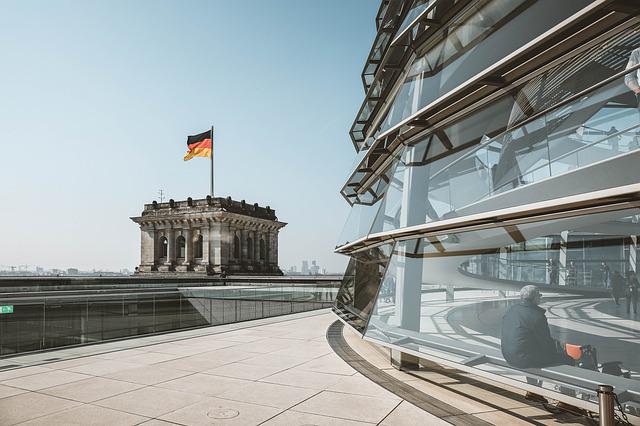May 18, 2023
The survey conducted by the German Chamber of Industry and Commerce (DIHK) among 5,100 member companies of the German Chambers of Commerce Abroad (AHK) shows that there is only a lukewarm economic breeze blowing where a powerful upswing would have been expected after three years of global crisis.
With a view to the economic development at their respective international locations, the companies expecting a plus for the next twelve months (28 percent) and those expecting a minus (27 percent) are more or less in balance.
“The share of optimists has thus increased by 11 percentage points compared to the previous survey and the share of pessimists has decreased by 20 percentage points”, says DIHK Chief Executive of Foreign Trade Volker Treier. “However, expectations remain very cautious overall. There is no sign of a real boom for miles.”
Prospects in China uncertain
After the end of the zero-covid policy, 40 percent of the German companies active in China, for example, expect a strong upswing in the next twelve months, while 19 percent expect a weaker economic development. 29 percent of the companies there assess their current business situation as good and 22 percent as poor. On balance, this is even a more pessimistic assessment of the situation than in autumn, at the time of the previous survey (32 percent good, 18 percent bad). Uncertainty about the economic development after the end of the zero-covid policy is still negatively influencing the current mood of businesses.
“Uncertainties surrounding future trade relations with China are also weighing on our local companies”, says Treier. “The discussion about decoupling, i.e. breaking away from the Chinese market, casts a shadow over the China business of companies active there.”
But positive outlook in America
In the USA, the majority of companies expect a positive economic development in the current year. Only in Central and South America the German companies are preparing for a worse economic situation than in the autumn. Accordingly, their own good business expectations there have weakened somewhat compared to autumn, but on balance remain positive. In Europe, on the other hand, the pessimists still predominate.
Reasons for the subdued confidence of companies lie in structural challenges such as geopolitical uncertainties and a difficult financial environment due to rising interest rates. This is reflected, for example, in the medium-term geopolitical challenges and the numerous business risks, such as financing risk (mentioned by 25 percent of respondents).
However, skills shortage is increasingly becoming a bottleneck. 40 percent of companies are worried about not finding enough qualified workers at their locations – more than ever before in the survey. Labour costs are also rising, 34 percent of companies see this as a risk.
But there are also positive developments. Supply chains are stabilising; only 24 percent of companies now see supply chain disruptions as a risk to their business development. Energy price pressures have eased compared to the previous survey, although 35 percent of companies still see this as a business risk. In Europe, this is still one of the top risks.
Business situation and expectations brighter
In all regions the business situation is positive, which can be attributed, among other things, to easing supply chain disruptions and lower energy prices. In spring 2023, 50 percent of companies rate their business situation as good and 40 percent as satisfactory. Only 10 percent report a poor business situation.
In addition, 47 percent of the companies expect better business at their respective location in the coming twelve months (autumn 2022: 37 percent). In contrast, only 11 percent expect their local business to deteriorate over the same period (autumn 2022: 21 percent).
“The number of pessimists has thus dropped by ten percentage points, and the number of optimists has increased by ten points at the same time,” says DIHK Chief Executive of Foreign Trade Volker Treier. “So companies can still cope with the challenges. In order to continue to face the challenges in future, companies need encouraging political framework conditions. This includes the conclusion of trade agreements, such as with Mercosur.”
Source: German Chamber of Industry and Commerce (DIHK)
Legal Notice: The information in this article is intended for information purposes only. It is not intended for professional information purposes specific to a person or an institution. Every institution has different requirements because of its own circumstances even though they bear a resemblance to each other. Consequently, it is your interest to consult on an expert before taking a decision based on information stated in this article and putting into practice. Neither Karen Audit nor related person or institutions are not responsible for any damages or losses that might occur in consequence of the use of the information in this article by private or formal, real or legal person and institutions.






